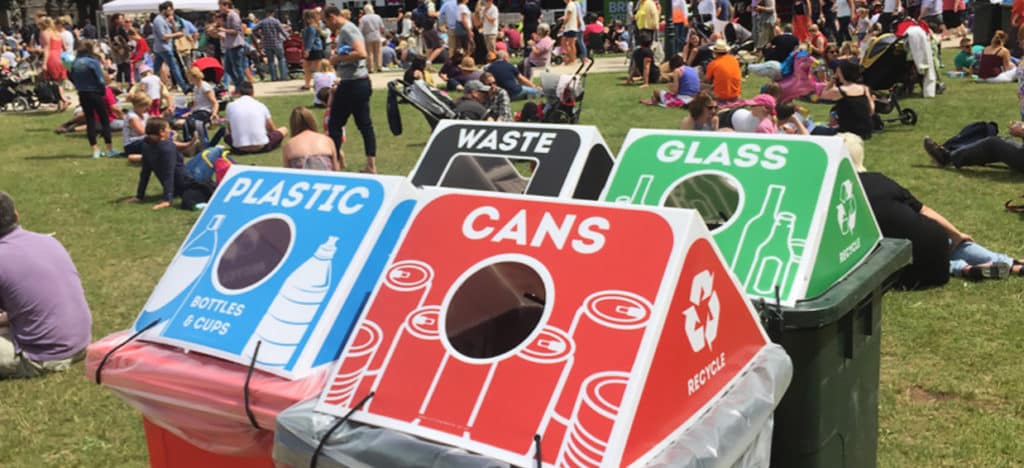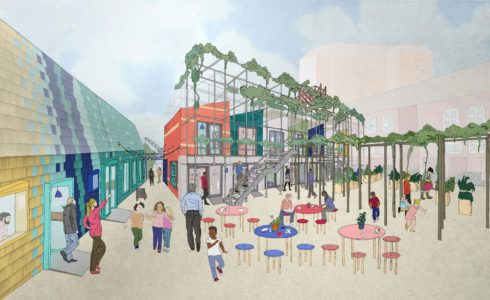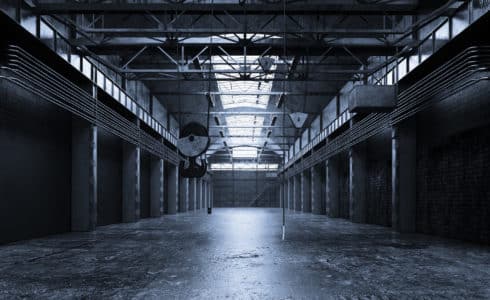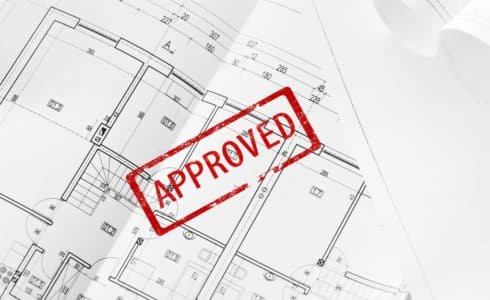
Sustainability: why now?
The importance of sustainability has been one of the most important conversations within the events industry for a number of years now, and never has it felt more essential than today, after watching a global health crisis play out against the backdrop of an ever-increasing climate crisis, one which has the potential for severe, long-term consequences.
Events have always struggled to adapt to a more sustainable model, in part because the premise of creating something entirely temporary is inherently wasteful. But human beings aren’t all the same – we are a diverse bunch, with different needs, loves, passions and interests – meaning the events, exhibitions, theatre shows and experiential activations that we enjoy are different too, often utilising completely unique and bespoke elements which have little to no use once the event has passed.
Site specific events: the good and the not so good.
Despite its transient qualities, site-specific work actually does have one hugely positive sustainability trait; shows that use their location as part of the narrative are by their very nature repurposing existing assets, and avoiding the waste of creating a temporary bespoke set. This may not work for every show, but given the rest of what we’re about to explore, you have to take the positives where you can!
Because arguably, much site specific immersive work has the potential to be substantially worse from a sustainability perspective than a standard theatre show, simply due to the infrastructure they require. Many larger shows held in abandoned warehouses or green field sites have to generate their own power using generators that can be burning hundreds of litres of diesel day. During winter when you require diesel boilers, or in the height of summer when you have to run air conditioning, that burn of fuel can easily double. There are sadly usually few alternatives as accessing adequate mains power can require months of lead time and often tens of thousands of pounds to run in the relevant infrastructure – rarely an option unless you’re willing to take on a long-term or permanent lease.
At Entourage, we’ve undertaken extensive research looking for temporary alternatives, and are exploring a number of options including mains gas generator suppliers, which are significantly cleaner and cheaper to run than diesel but are still an unproven technology. There are also some hybrid generator options on the market, but nothing we’ve seen with sufficient horsepower to completely replace the standard diesel options. However, the signs are good, and we’ll continue to work with suppliers, venues and other events organisations to continue the search for innovative, more environmentally friendly power options.
Diesel: change is coming.
One thing that might be about to focus people’s minds are the planned rule changes around duty for diesel scheduled for early 2022. At the moment, generators can be fuelled by Red Diesel which is made for off road equipment and vehicles, and taxed a lot lower than standard diesel. It’s essentially the same fuel but with a red additive to help inspectors identify where it’s been used. It accounts for 15% of diesel use in the UK due to the 80% discount in price, and an estimated 14 million tonnes of CO2 emissions every year. However, from 1st April 2022 the eligibility to use red diesel for event generators will be eliminated, leading to rapid price rises for fuel – perhaps the motivation needed for alternative, cleaner and more sustainable options to present themselves.
So how can events do better?
While power and HVAC (Heating, Ventilation, Air Conditioning) are some of the big sustainability blackspots, along with the aforementioned waste from sets and graphics, there’s also a huge environmental cost from food and beverage waste, attendee travel and event transportation; all variables that need to be examined and efforts made to find more sustainable alternatives.
We often have these conversations with clients we work with, who want to “do the right thing” but don’t have a framework to work with. There are choices that look like they might be better, but they usually cost more money and no one can really say environmentally how much better they are. Unlike many of the financial aspects of a show, up until recently there haven’t been quantifiable metrics that show organisers can use to check their event’s sustainability performance and measure improvements against previous shows and industry benchmarks.
That’s why we’ve joined ISLA, who are working with companies across the events industry to create a workable standardised method of measuring the environmental impact of an event to try and collectively accelerate the pace of change towards more sustainable working practices. They have just released their Proseed framework as a way for events organisers to environmentally benchmark their events and consider ways of making them more sustainable. It’s something that we’re going to be trying to incorporate into all of our projects moving forward to give visibility to problem areas and ensure sustainable choices are offered wherever possible.
We believe that being able to publish data about environmental performance could become a catalyst for change in the sector, allowing clients and audiences to make informed decisions about who they want to entrust with their money. If you’d like to find out more about how you could run more sustainable events, get in touch with us, or explore the Isla resources available on their website.



